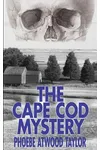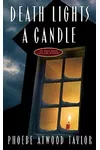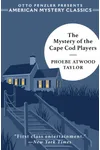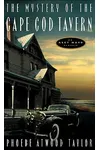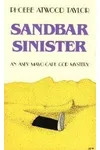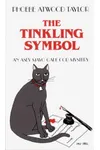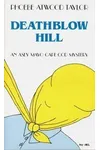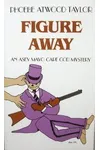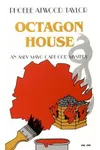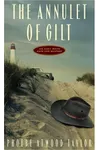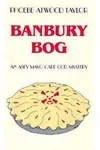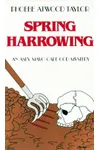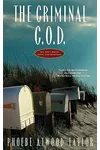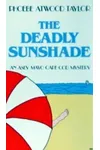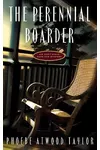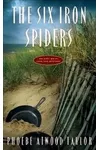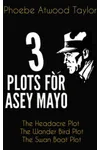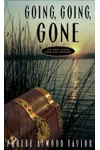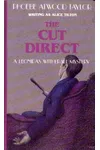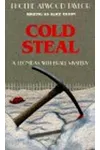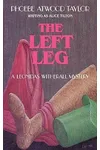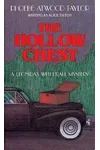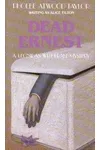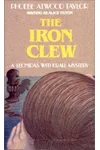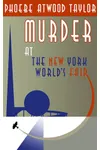Picture a Cape Cod summer, salty air, and a clever sleuth unraveling a murder mystery—meet Phoebe Atwood Taylor, the American queen of cozy crime! Born in Boston in 1909, Taylor spun witty, fast-paced tales that brought New England’s charm to life. Her Asey Mayo series and pseudonymous Leonidas Witherall novels made her a Golden Age mystery star, blending humor, local color, and intricate plots.
With a knack for crafting vivid characters and settings, Taylor’s stories feel like a breezy seaside chat with a sharp detective. Let’s dive into her life, her unforgettable works, and why she still captivates mystery lovers today!
The Making of Phoebe Atwood Taylor
Phoebe Atwood Taylor was born on May 18, 1909, in Boston, Massachusetts, to a family with deep Cape Cod roots, descending from Mayflower Pilgrims. Her father, a physician, and her mother instilled a love for the region’s culture, which later flavored her novels. After graduating from Barnard College in 1930, Taylor returned to Boston, trading lecture halls for late-night writing sessions. By 1931, she’d penned her debut, The Cape Cod Mystery, launching her career at just 22. Married to surgeon Grantley Walder Taylor in 1951, she juggled domestic life with a prolific output, often writing from midnight to 3 a.m. after a day of housekeeping.
Phoebe Atwood Taylor’s Unforgettable Stories
Taylor’s signature creation, Asey Mayo, the “Codfish Sherlock,” anchors her 24-book Cape Cod series. Introduced in The Cape Cod Mystery (1931), Mayo, a former sailor and handyman, solves crimes with Yankee wit and common sense. The novel, selling 5,000 copies in the Great Depression, hooked readers with its cozy yet clever plot—a murder at a summer cottage with suspects galore. Death Lights a Candle (1932) followed, trapping Mayo at a snowy house party where arsenic poisons the host, showcasing Taylor’s knack for claustrophobic settings.
Under the pseudonym Alice Tilton, Taylor wrote eight Leonidas Witherall mysteries, starting with Beginning with a Bash (1937). Witherall, a Shakespeare-lookalike and detective, tumbles into farcical capers, like dodging police while solving a Boston murder. Critics, like Dilys Winn, compared Taylor’s slapstick style to Buster Keaton, blending humor with chaos. Taylor also penned Murder at the New York World’s Fair (1938) as Freeman Dana, a standalone thriller set amid the fair’s glitz. Her stories, rich with Cape Cod’s vernacular and 1930s–40s culture, move at a breakneck pace, often resolving in days.
Taylor’s strength lies in her characters—strong, witty women and quirky locals—and her vivid settings, from Wellfleet’s dunes to Boston’s brick streets. Her light tone, just shy of screwball comedy, makes her mysteries both thrilling and fun, perfect for a beachside read.
Why Phoebe Atwood Taylor Matters
Phoebe Atwood Taylor’s mysteries are time capsules of New England life, capturing the Great Depression, World War II blackouts, and small-town quirks with humor and heart. Her Asey Mayo series, praised by Anthony Boucher, offered readers an escape while grounding them in authentic Yankee culture. Her influence endures in the cozy mystery genre, inspiring writers who blend local flavor with clever plots. Taylor’s reprints and fanbase on platforms like Goodreads show her stories still resonate, proving her knack for timeless storytelling.
Her pseudonymous works, especially the Witherall series, added a playful layer to her legacy, with Witherall even inspiring a 1944 radio show, The Adventures of Leonidas Witherall. Taylor’s ability to balance domestic life with a grueling writing schedule makes her a quietly feminist figure in a male-dominated era.
- Born: May 18, 1909, Boston, Massachusetts
- Died: January 9, 1976, Boston, Massachusetts
- Key Works: The Cape Cod Mystery, Death Lights a Candle, Beginning with a Bash
- Pseudonyms: Alice Tilton, Freeman Dana
Snag The Cape Cod Mystery and dive into Phoebe Atwood Taylor’s witty, seaside sleuthing—your next cozy read awaits!
